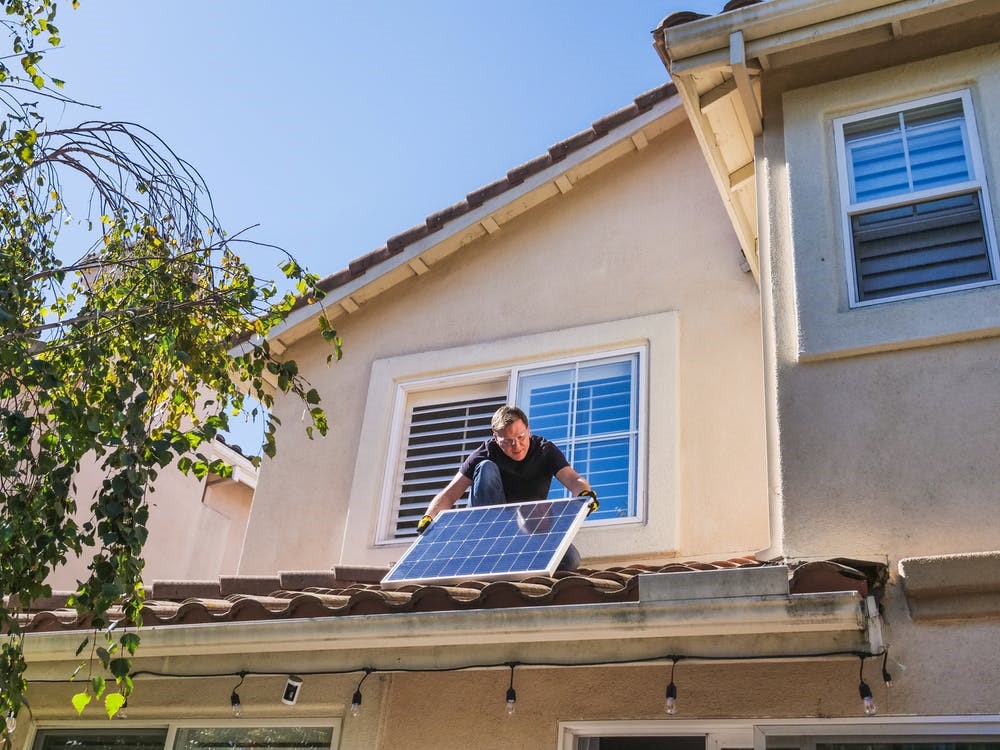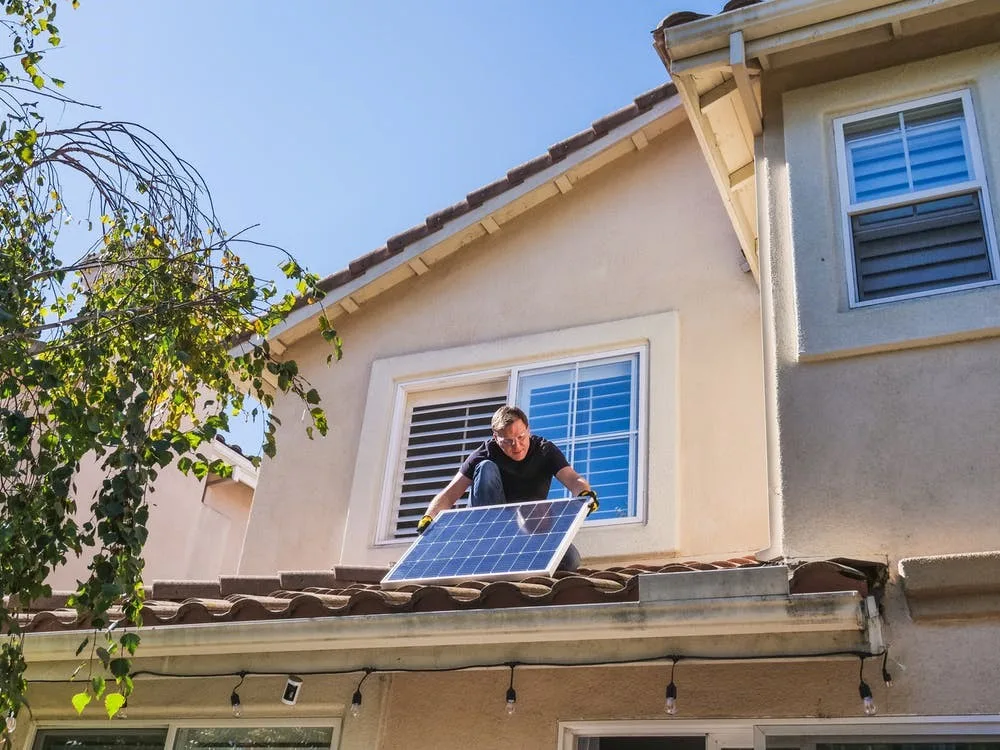Are you looking to reduce your monthly utility expenses by making your house more energy-efficient? Or perhaps, you want to lower your property’s carbon footprint and invest in clean and green household energy? Either way, shifting to energy-efficient home components will elevate your life quality and reduce your monthly expenses.

There are several strategies to make your house more energy-efficient. For instance, you can invest in smart appliances that automate home components to prevent energy wastage. A smart thermostat regulates heat and temperature by using motion-detecting sensors, turns off automatically when the house is empty.
Suppose you don’t have thousands of dollars to splurge on smart appliances and automated home components. In that case, you can improve the drywall and insulation and seal all areas that allow hot air to escape. Keep reading to explore more ideas to make your home energy-efficient and eco-friendly.
Eliminate Dust-Collecting Clutter
Transforming a living space into a storage room, such as the garage, attic, or basement, comes with numerous costs. The clutter of unwanted items and discarded belongings increase household energy bills, making interior spaces inefficient and disorganized.
It deprives you of precious square footage while your dust-collecting clutter consumes energy to maintain a temperature-controlled environment.
You cannot turn the HVAC system off in the storage units, especially if you’re storing artwork, photographs, furniture, and memorabilia.
We advise renting a nearby storage facility to relocate your unwanted belongings and reduce your energy consumption. Google can help you find the most reliable and credible businesses within your neighborhood or locality.
Suppose you’re looking for a temperature-controlled storage unit in Olympia. In that case, use the search keywords ‘Olympia storage units‘ to connect with reputable and high-ranking businesses. We strongly urge exploring reviews penned down by Olympia residents and homeowners before rounding options.
Visiting multiple facilities in your vicinity will help you explore security protocols and settle for the best option.
So, how will relocating your clutter to a storage facility reduce your energy consumption? It will reduce energy consumption by reducing the need for vacuuming, temperature regulation, dust removal, and electric fixtures. What’s more, you can repurpose the space into a functional living space that adds value to your life.
Read Also:
Seal Everything!
All residential properties are riddled with tiny holes, gaps, and leaks that escape hot and cool air. When hot or cool air constantly escapes, it puts more burden on the HVAC system to normalize and regulate home temperature.
This pressure results in increased energy consumption and utility bills. You can end this issue by sealing everything, from the ductwork to the gaps between windows and doors.
Sealing the joints and daps in the ductwork across the basement and the upper floor will help you regulate home temperature. You can seal the joints and gaps with some heating-vent tape yourself. However, the windows and doors will need an airtight seal that might demand the expertise of a professional.
It’s wise to engage a professional to examine the doors and window frames for signs of the draft. The frames might need caulking, weatherproofing, or an exterior film to boost efficiency. It’s advisable to add a door sweep to prevent the hot air from escaping during chilly winter months.
Insulate Your Property
Is your property well-insulated to maintain energy-efficient home components? If not, insulation is an investment that will boost market value and keep your home cozy during chilly months. Insulation works wonders at boosting energy efficiency all year round.
You need to start with the roof because most heat is lost through roofing issues. Roofing insulation may prove financially burdensome, but you can look into energy-related home loans that cover insulation. Wall insulation is a cost-effective and highly efficient strategy to retain heat and reduce energy consumption.
Cavity wall and fiberglass insulation can tremendously reduce your heating expenses and carbon footprint. What’s more, homeowners can recover the cost of insulation within five years by saving on yearly energy expenses.
Boiler Repair & Maintenance
Did you know that the boiler accounts for over 50% of the energy expenses? That’s right, and if your boiler is inefficient, your home energy bills are bound to mount up and multiply. You see, the boiler consumers more energy than all your electrical appliances and home components.
Damaged and under-maintained boilers utilize more energy than they require, resulting in excess carbon pollution.
If your boiler has provided over ten years of utility, it’s time to invest in a newer model. A damaged and inefficient boiler increases energy bills and damages the environment by producing excess carbon. You have two options to address this issue: upgrade to a newer model or repair and maintain your existing boiler.
Replacing an old gas boiler with newer technology can dramatically reduce your energy consumption and carbon footprint. In most cases, buying a new model is more cost-effective than repairing an outdated boiler. And shifting to a modern condensing boiler that provides underfloor heating is an investment that you can recover quickly.
Invest in Solar Panels
Have you ever considered powering all-electric components and home appliances using the clean and green energy of the sun? Most homeowners find the idea appealing but hesitate because of the staggering cost of solar panels. It’s wise to focus on the ROIs and long-term benefits of solar energy while determining the merits of this investment.
Today, the price of solar panels is considerably lower than it was a decade ago. Solar panels are a much more affordable investment, given the overwhelming variety in the market.
Besides, you can start small and gradually add panels instead of shifting to solar energy with multiple panels. In the long run, solar panels will make your house energy-efficient and fully reliant on the shining sun.
Final Thoughts
Instead of overwhelming yourself with staggering expenses, focus on the little changes you can make to reduce energy consumption. For instance, turning off lighting fixtures and using natural daylight will help reduce utility bills by nearly 15%. You can also make your home energy efficient by shortening your showers, conserving water, and preventing electricity wastage.










